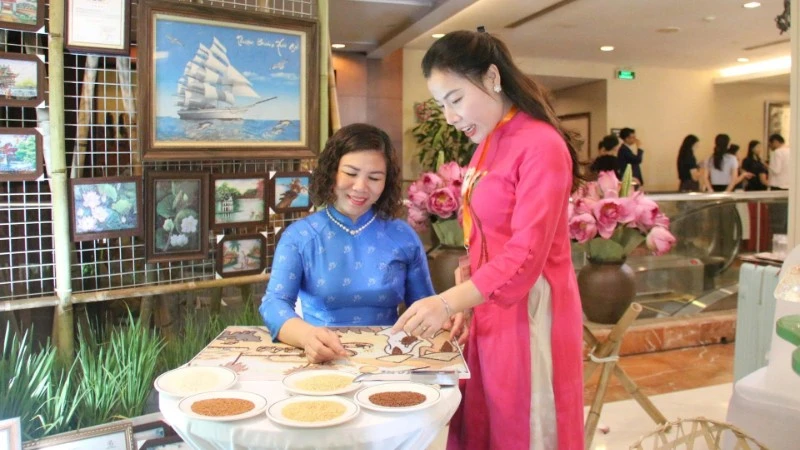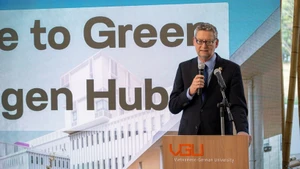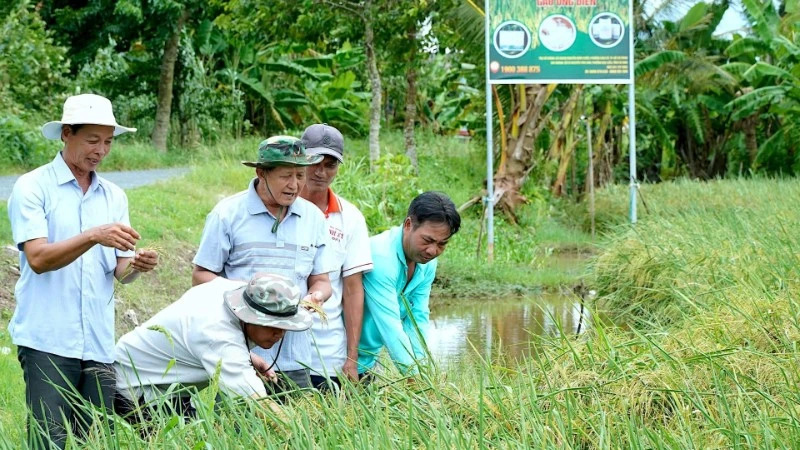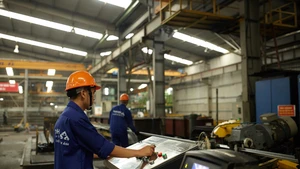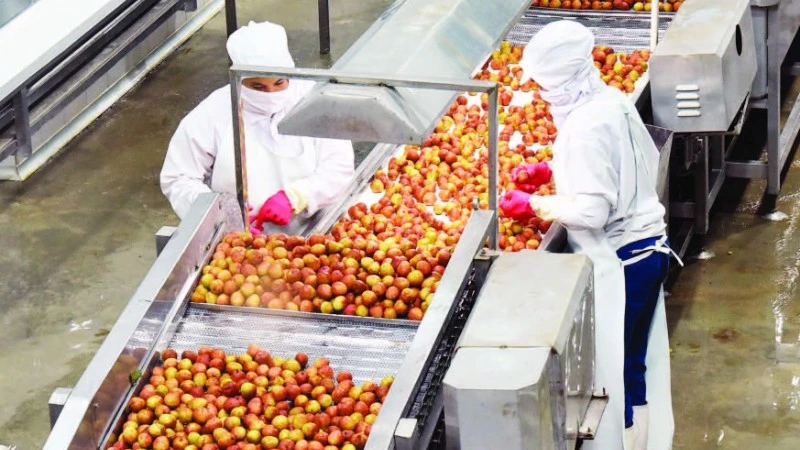In 2017, Xuyen mobilised local people to establish a VietGAP tea production group, which later developed into the Hoan Xuyen Safe Tea Cooperative in 2020. For Xuyen, every tea bud is not only an agricultural product but also the crystallisation of dedication, humanity, and the aspiration to affirm the role of rural women in the journey of green entrepreneurship.
Tong Thi Xuyen, Director of the Hoan Xuyen Safe Tea Cooperative, shared that the cooperative currently generates average annual revenue of 1.5–1.7 billion VND. Its flagship product, “Non tam tra Hoan Xuyen”, has been recognised as a 4-star OCOP product and is available in many provinces and cities, creating stable jobs for dozens of local workers and linked tea-growing households, thereby contributing to improved income and stable livelihoods for the people in tea-growing areas.
Nguyen Van Dung, Chair of the Thai Nguyen Provincial Cooperative Alliance, recognised the cooperative as one of the exemplary models reflecting the strong spirit of innovation among agricultural cooperatives in the province. The persistence of Xuyen and her members in following VietGAP standards, focusing on product quality, and investing in packaging design has enhanced the cooperative’s market competitiveness.
“We strongly encourage and support cooperatives that combine tradition with technology application, brand building, market development, and that continue to strengthen governance, expand linkages in raw material zones, and promote digital trade channels,” Dung said.
In Ha Noi, Nguyen Thi Van has chosen a different direction — transforming grains of rice from her homeland into artistic works embodying Vietnamese cultural essence.
From rustic rice grains, Van’s Quan Van Rice Painting Studio in Soc Son, Ha Noi, has gradually built a brand with artworks rich in Vietnamese spirit. Not only are her delicate rice paintings beloved by domestic consumers, they have also been exported through small-scale orders to countries such as Japan, the Republic of Korea, and the United States, via tourists’ requests.
Sharing about the journey of establishing the Quan Van Rice Painting brand, Van said emotionally: “I never thought that the humble rice grain in our daily meals could travel so far. With every order sent abroad, I feel as though I am sending a part of Viet Nam’s soul — a message about the ingenuity and creativity of Vietnamese women in particular, and Vietnamese people in general — to international friends.”
Evaluating Van’s entrepreneurial model, Nguyen Minh Tien, Director of the Agricultural Trade Promotion Centre, noted that Quan Van rice paintings exemplify creative startup spirit in handicrafts. This model not only helps promote Vietnamese agricultural products in a new and refined way but also opens a sustainable pathway for many rural women, inspiring entrepreneurship rooted in traditional values.
According to the Thai Nguyen Provincial Cooperative Alliance, the province has over 1,300 cooperatives, including 260 led by women, primarily in agriculture and tea-related production and business, generating an average annual revenue of 2.2 billion VND per cooperative. These cooperatives have created jobs for 4,300 members and workers, with an average monthly income of nearly 5 million VND per person. These achievements stem from Thai Nguyen’s breakthrough policies.
The province has issued a plan on “Implementing the Project on Supporting Cooperatives Managed by Women, Creating Jobs for Female Workers to 2030” with the aim of improving the material and spiritual lives of members and workers, while raising women’s awareness of the Party’s guidelines and the state’s policies on collective economic development and cooperatives.
In Ha Noi, supporting women in production development, agricultural restructuring, and applying scientific and technological advances has always received attention from the political system. The Ha Noi Women’s Union has supported the establishment of 17 cooperatives, 20 cooperative groups, and 50 linkage groups managed and operated by women, which have attracted wide participation.
In addition to supporting women in building collective economic models, the Ha Noi Women’s Union also helps members access capital, technology, and develop high-value agricultural products, thus contributing to increased income.
Commenting on women-led cooperative models, Tran Thanh Nam, Deputy Minister of Agriculture and Environment, stated that the OCOP programme has nearly 17,400 products from more than 9,300 entities rated 3 stars or higher. Notably, women account for about 40% of OCOP entities, with nearly 20% from ethnic minority groups, demonstrating the increasingly prominent role of women and vulnerable groups in agricultural development and new-rural construction.
According to Deputy Minister Tran Thanh Nam, women will continue to play an important role in building new-style rural areas and developing sustainable rural economies in the coming period. The Ministry of Agriculture and Environment will closely coordinate with the Vietnam Women’s Union to implement various support activities focused on key directions aimed at enhancing women’s roles in building new-style rural areas, contributing to the realisation of the sustainable development goals for the 2026–2035 period.
A new pathway for green and sustainable economic development has emerged, and it is believed that in the new era, Vietnamese agriculture will continue to thrive, with more green economic models led by women.
